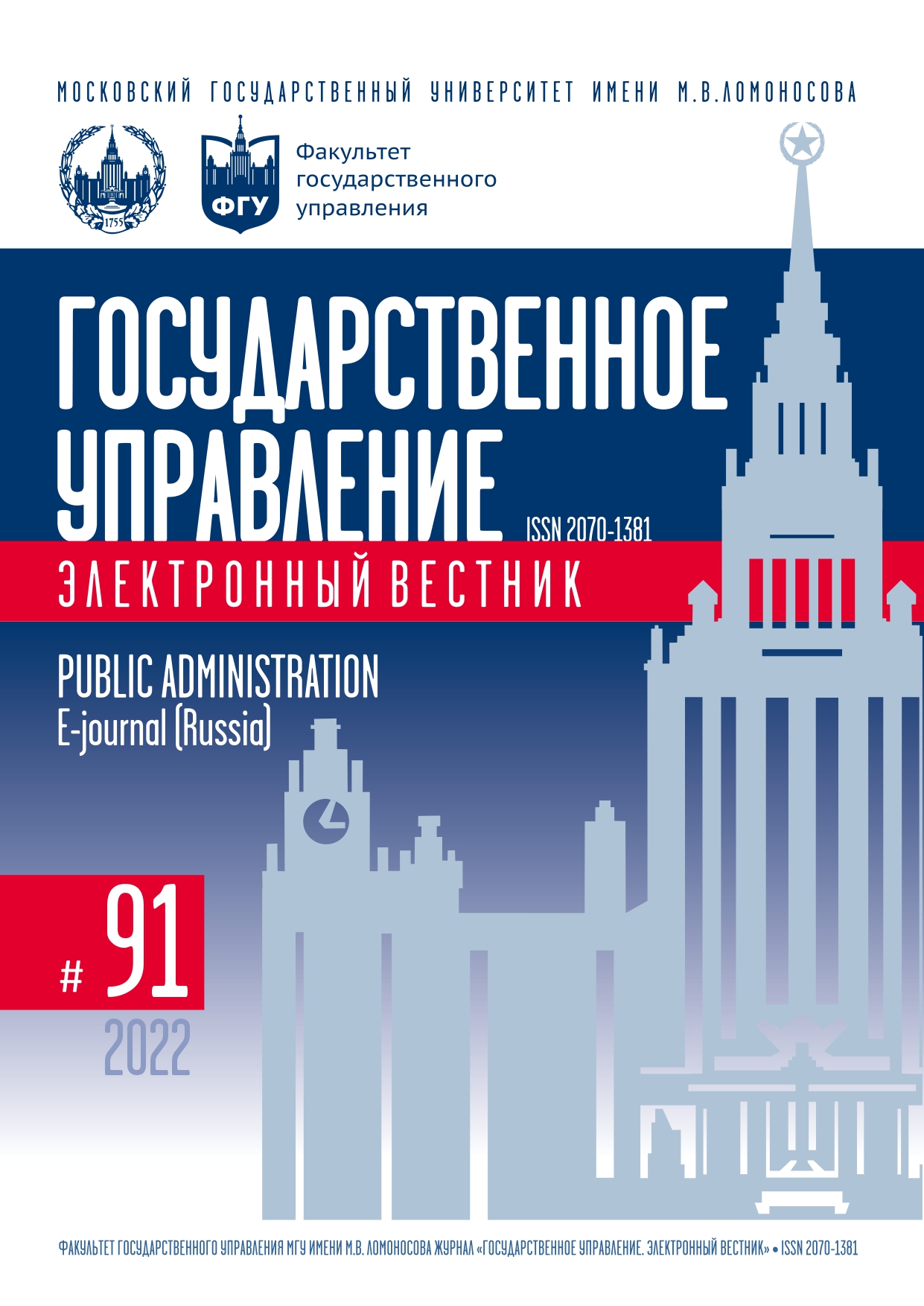Plot-Ideological Approach to Values Study: Model and Results
Keywords:
Values, cultural code, youth, ideology, plot, postmaterialism, Inglehart, HofstedeAbstract
The article proposes for consideration a conceptual model of the plot-ideological approach to studying cultural code, values and moral and ethical attitudes of modern Russian youth, which continues and develops the research tradition of S. Schwartz, M. Rokeach, G. Triandis, G. Hofstede and R. Inglehart, their political-philosophical and socio-cultural approaches in humanitarian research. Also, the article presents for discussion some of the results obtained in the course of applying this model. The model is based on a focus group study, where the respondents, divided into groups with specific predetermined ideological attitudes, had to offer a solution to the problem, make self-determination or choose one of the positions in the ethical task enclosed in the plot. For the study, adapted and veiled plots of world literature and cinema were used. All plots are divided into 4 conditional groups that affect the cultural, social, moral and ethical spheres of life, as well as issues related to the ideological position in relation to nature in general and human nature in particular. This article provides an analysis of respondents’ answers to stories from the “sphere of culture” and “sphere of social relations” groups. An analysis of the study results shows that the cultural code of modern Russian youth is based on such categories as justice, collectivism, peace, security, spiritual development and inequality. However, not all categories are understood unambiguously and consistently. Some categories such as fairness are not unambiguous and specific. This set of categories gives reason to believe that today’s Russian youth is undergoing a transformation from materialistic to post-materialistic values.
References
Андреюк Д.С., Петрунин Ю.Ю., Храбровская В.Д. Метод кластеризации групп молодежи на основании ценностных смыслов в отношении профессионального развития и жизни в целом // Государственное управление. Электронный вестник. 2020. № 83. С. 221–242. DOI: 10.24411/2070-1381-2020-10117
Вебер М. Хозяйство и общество: очерки понимающей социологии. М.: Изд. дом Высшей школы экономики, 2016.
Дюркгейм Э. Ценности и «реальные» суждения // Социологические исследования. 1991. № 2. С. 106–114.
Инглхарт Р., Вельцель К. Модернизация, культурные изменения и демократия: Последовательность человеческого развития. М.: Новое издательство, 2011.
Лотман Ю.М. Семиосфера. СПб.: Искусство-СПБ, 2000.
Новая политическая этика российской молодежи / под ред. А.В. Селезневой. М.: Аквилон, 2021.
Петрунин Ю.Ю., Андреюк Д.С. Программы поведения как основа управления современными экономическими системами // Вестник Московского университета. Серия 21. Управление (государство и общество). 2008. № 3. С. 38–53.
Рязанцев И.П., Подлесная М.А., Богдан И.В. Универсализм ценностей студенческой молодежи и развитие российского общества // Вестник Российского университета дружбы народов. Серия: Социология. 2021. Т. 21. № 1. С. 97–109. DOI: 10.22363/2313-2272-2021-21-1-97-109
Селезнева А.В. Основные подходы к исследованию политических ценностей // Вестник Московского университета. Серия 12. Политические науки. 2007. № 3. С. 110–117.
Селезнева А.В. Ценностные основания политических идеологий: Политикопсихологический анализ // Политическая наука. 2017. Специальный выпуск. С. 365–384.
Триандис Г.К. Культура и социальное поведение. М.: ФОРУМ, 2007.
Шюц А. Символ, реальность и общество // Вестник культурологии. 2003. № 1. С. 25–86.
Щекотуров А.В. Политическое доверие и ценности лояльной и оппозиционной молодежи в эксклавном регионе России // Вестник Российского университета дружбы народов. Серия: Политология. 2021. Т. 23. № 4. С. 570–583. DOI: 10.22363/2313-1438-2021-23-4-570-583
Hofstede G. Culture’s Consequences: International Differences in Work Related Values. London; Beverly Hills: Sage Publications, 1980.
Hofstede G. Cultures and Organizations: Software of the Mind. London; New York: McGraw-Hill, 1991.
Hofstede G. Dimensionalizing Cultures: The Hofstede Model in Context // Online Readings in Psychology and Culture. 2011. Vol. 2. Is. 1. DOI: https://doi.org/10.9707/2307-0919.1014
Hofstede G., Hofstede G.J., Minkov M. Cultures and Organizations: Software of the Mind. New York: McGrawHill USA, 2010.
Inglehart R. Modernization and Postmodernization: Cultural, Economic, and Political Change in 43 Societies. Princeton: Princeton University Press, 1997.
Inglehart R. The Silent Revolution: Changing Values and Political Styles Among Western Publics. Princeton: Princeton University Press, 1977.
Rokeach M. The Nature of Human Values. New York: Free Press, 1973.
Schwartz S.H. Universals in the Content and Structure of Values // Advances in Experimental Social Psychology. 1992. Vol. 25. Р. 1–65. DOI: https://doi.org/10.1016/S0065-2601(08)60281-6
Triandis H.C. Cross-Cultural Studies of Individualism and Collectivism // Nebraska Symposium on Motivation / ed. by J. Berman. Lincoln: University of Nebraska Press. 1995. Р. 41–133.

